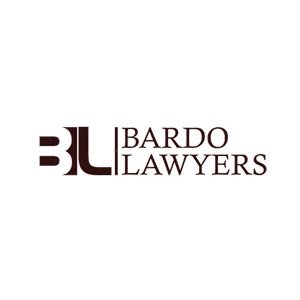Best Nonprofit & Charitable Organizations Lawyers in Glenroy
Share your needs with us, get contacted by law firms.
Free. Takes 2 min.
List of the best lawyers in Glenroy, Australia
About Nonprofit & Charitable Organizations Law in Glenroy, Australia
Nonprofit and charitable organizations in Glenroy, Australia, play a crucial role in advancing social causes, providing essential services, and contributing to community development. These organizations are typically formed for public benefit and are not driven by profit motives. Legal frameworks in Australia provide specific guidelines concerning the establishment, operation, and governance of nonprofit entities to ensure transparency, accountability, and alignment with their stated purposes.
Why You May Need a Lawyer
There are various situations in which individuals or organizations may require legal assistance in the realm of nonprofit and charitable organizations. Common scenarios include:
- Setting up a nonprofit organization, ensuring compliance with legal registration processes.
- Drafting and reviewing bylaws, policies, and contracts.
- Navigating complex tax legislation and securing charitable status.
- Ensuring compliance with reporting and other regulatory obligations.
- Resolving disputes within the organization or with third parties.
Local Laws Overview
In Glenroy, nonprofit and charitable organizations must adhere to both federal and state regulations. Key aspects include:
- Registration: Organizations must register with the Australian Charities and Not-for-profits Commission (ACNC) if they seek tax concessions or want to operate as a registered charity.
- Taxation: Nonprofits may be eligible for income tax exemptions, deductible gift recipient (DGR) status, and other tax concessions.
- Governance: Ensuring proper governance structures are in place, including board responsibilities and professional conduct.
- Fundraising Regulations: Compliance with fundraising laws that regulate solicitation of donations from the public.
Frequently Asked Questions
What steps are required to establish a nonprofit organization in Glenroy?
You must decide on a legal structure, draft a governing document, register with the ACNC if applicable, and comply with relevant state and federal laws.
Do nonprofit organizations in Glenroy pay taxes?
Nonprofits may be eligible for various tax exemptions, but they must apply for and maintain these statuses. Regular reporting to the ACNC is typically required.
How can I obtain fundraising authorization in Glenroy?
Organizations intending to fundraise must comply with specific state fundraising laws, which usually involve acquiring a fundraising license or authority.
What constitutes good governance for nonprofits?
Good governance includes effective leadership, transparent processes, accountability to stakeholders, risk management, and ethical practices.
Is it mandatory to have a board of directors?
Yes, nonprofits are generally required to have a governing body, such as a board of directors, responsible for overseeing operations and strategic direction.
How do I dissolve a nonprofit organization?
Dissolution processes include settling debts, distributing remaining assets according to the nonprofit’s governing documents, and deregistration with relevant authorities.
Are there restrictions on political activities for charities?
Yes, charities must ensure that their primary purpose is charitable, though they can undertake some political activities directly related to their purpose.
What are the consequences of failing to comply with nonprofit laws?
Non-compliance can lead to penalties, loss of tax exemptions, reputational damage, and potential legal proceedings.
Can nonprofits engage in commercial activities?
Yes, as long as the activities align with the nonprofit’s purpose and profits are reinvested in the organization’s mission.
What record-keeping is required for nonprofits?
Nonprofits must maintain accurate financial records, meeting minutes, and other documents to demonstrate compliance with legal requirements.
Additional Resources
For those seeking further assistance, consider the following resources:
- Australian Charities and Not-for-profits Commission (ACNC)
- Victorian Department of Justice and Community Safety
- Institute of Community Directors Australia
- Justice Connect's Not-for-profit Law service
Next Steps
If you need legal assistance in nonprofit and charitable organizations, consider the following steps:
- Identify specific legal needs related to your organization.
- Consult with a local lawyer specializing in nonprofit law to understand your obligations and options.
- Ensure your organization complies with all necessary legal requirements and seek assistance for complex issues.
- Utilize the resources listed above to enhance your understanding and navigate the legal landscape efficiently.
Lawzana helps you find the best lawyers and law firms in Glenroy through a curated and pre-screened list of qualified legal professionals. Our platform offers rankings and detailed profiles of attorneys and law firms, allowing you to compare based on practice areas, including Nonprofit & Charitable Organizations, experience, and client feedback.
Each profile includes a description of the firm's areas of practice, client reviews, team members and partners, year of establishment, spoken languages, office locations, contact information, social media presence, and any published articles or resources. Most firms on our platform speak English and are experienced in both local and international legal matters.
Get a quote from top-rated law firms in Glenroy, Australia — quickly, securely, and without unnecessary hassle.
Disclaimer:
The information provided on this page is for general informational purposes only and does not constitute legal advice. While we strive to ensure the accuracy and relevance of the content, legal information may change over time, and interpretations of the law can vary. You should always consult with a qualified legal professional for advice specific to your situation.
We disclaim all liability for actions taken or not taken based on the content of this page. If you believe any information is incorrect or outdated, please contact us, and we will review and update it where appropriate.








